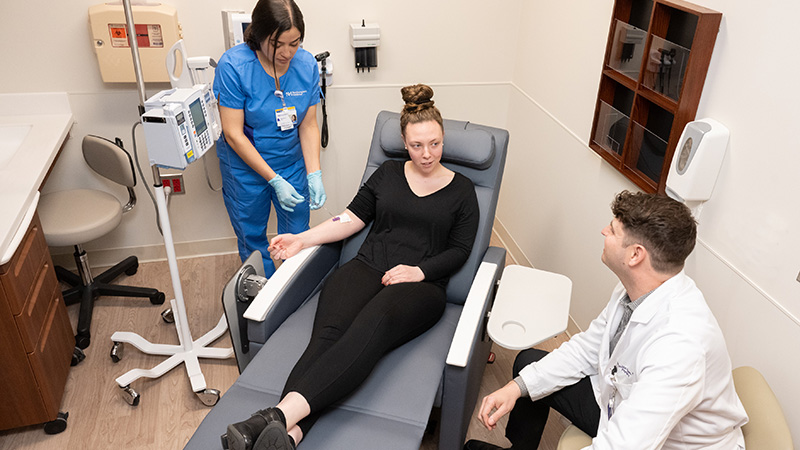Make Time for Mental Health
5 Reasons to Own Your Emotional Wellness
Your emotional health matters. What is emotional healthy? Simply put, emotional health refers to your state of being — stressed, calm, dissatisfied, content, happy, sad — as well as how you feel about your relationships and your ability to deal with difficulties. While inclusive of mental health, good emotional health is about more than living without stress, anxiety or depression. It concerns positive habits more than positive feelings, healthy tools to face any obstacles more than the absence of any obstacles.
Though we often regard our emotions as secondary to our physical health, the two are closely related. Taking care of yourself includes caring for your emotional health, however you feel most comfortable doing so. It can include self-care and strategies to help you de-stress, and for some it may involve talking to a professional. Whatever works for you, caring for your emotional health can allow you to live well with the tools to tackle whatever life throws your way.
Here are five reasons to raise your awareness about emotional health:
1. For Your Physical Health
It’s increasingly clear that emotional health is tied to physical health. When you’re physically ill and unable to ‘do’ things or meet your responsibilities, you’re more likely to develop stress or anxiety, and people with physical ailments are three times as likely to seek mental health care. On the other hand, when you improve your physical health – think fitness, healthy sleep habits, a nutritious diet – your body feels good, giving your emotional wellness a boost, too.
But the connection goes both ways. Anxiety and stress are associated with the development of serious medical problems like heart disease, ulcers and colitis. Emotional health concerns can also weaken your immune system, increasing your risk of disease. Research shows that people with untreated mental health concerns visit a doctor twice as often as those who receive care.
When you struggle with emotional health, you may also be more likely to fall into behaviors like smoking, excessive alcohol or drug use, or poor diet that can lead to physical problems.
2. For Your Friendships
Emotional health can also help you foster strong and healthy relationships. Supportive relationships, whether with a close friend, family member or mental health professional, can help reduce stress. Care and support from your community can have a lasting positive effect on your emotional health. Furthermore, social interaction, in general, is associated with improved mood. The ability to communicate well with others — both expressing your own feelings and listening to theirs — can improve your emotional health.
However, people struggling with their emotional health often find it difficult to maintain relationships or interact socially because of anxiety, anger or depression. Often, this can become cyclical: frustration with social interaction can make emotional health problems worse, which in turn make it more difficult to successfully interact socially. Actively look for ways to become a part of your community, and if you feel you’re facing serious obstacles, consider talking to a professional.
3. For Your Goals
Goals can feel impossible when coping with stress, anxiety or depression. However, care can go a long way: good emotional health is associated with higher productivity, better performance and more consistent work attendance. The tools that can help you find positivity during a rough patch can also put you in a motivated emotional state to tackle your to-do list, whether you’re looking to start a new exercise routine, pursue a passion or advance your career.
4. For Balance
Positive emotional health habits can also help you find balance in your life. Specifically, being in touch with and responsive to your feelings can help you negotiate the daily demands of work, recreation, exercise and relaxation. Positive emotional health also allows you to balance both good and bad feelings, your emotions and your stress so you can experience them in healthy, productive ways.
5. For Whatever Comes Next
One of the most significant benefits of caring for your emotional health is the preparation it provides for the future. Even the most emotionally healthy people will experience tough times that test their mood, relationships and health. Sadness, anxiety and stress are parts of life, but people with positive emotional health habits are equipped to cope in healthy ways. Emotional health fosters flexibility and adaptability in the face of adversity, which in turn allow you to bounce back and move forward.
Life will have ups and downs, and it’s completely natural to experience a range of emotions. Positive emotional health means you’re prepared when stress strikes. You know yourself, and you have the tools in place to face your challenges head on, without the fear to seek professional help when necessary.





